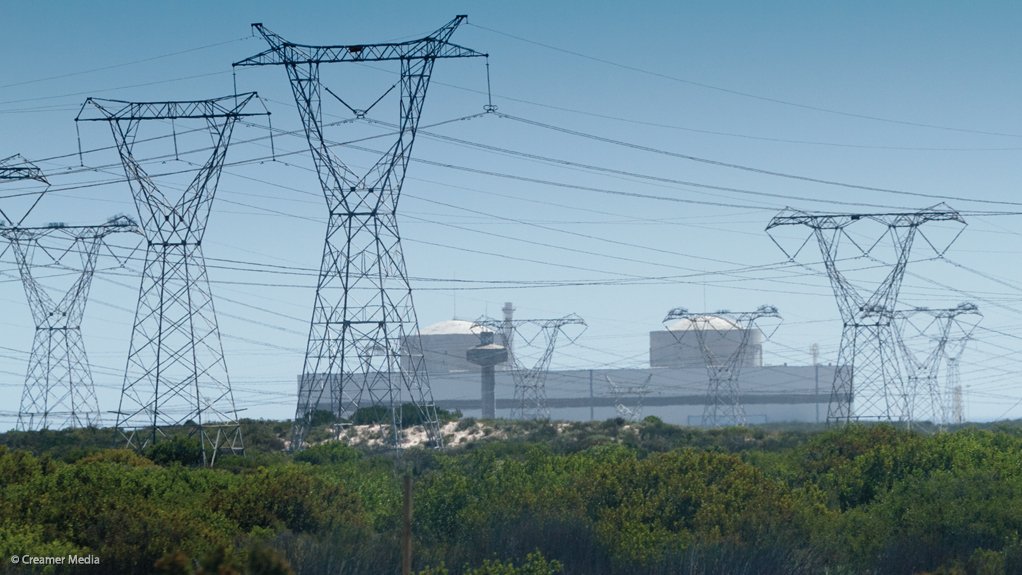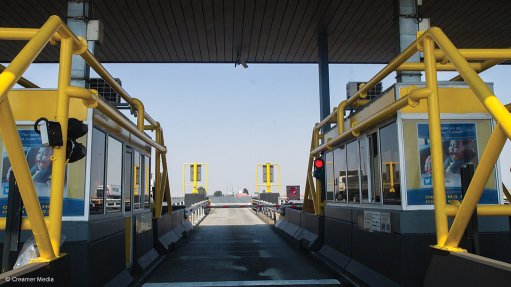R20bn Koeberg life-extension cost estimate of 2010 now ‘significantly different’
Eskom has confirmed that the change to the schedule for replacing the six steam generators at the Koeberg nuclear power station, will have an impact on the cost of the life-extension project, which was originally estimated at R20-billion.
This confirmation was provided during a joint meeting of the portfolio committees on mineral resources and energy and on public enterprises, convened to deliberate on a complaint made by the National Union of Mineworkers (NUM) regarding what the union claims to have been the unfair suspension of three senior Koeberg employees.
Acting chief nuclear officer Keith Featherstone told lawmakers that the delays had not altered the scope of the overall life extension plan, of which the replacement of the steam generators was a “critical enabler”.
Eskom is aiming to extend the life of the Koeberg power station for an additional 20 years beyond its current licence period, which expires on July 31, 2024.
Featherstone reported that unexpected “compensation events”, including a R650-million payment ordered by the Constitutional Court, and contract price adjustment increases would have an impact on the cost of the specific steam-generator replacement allocation, which was still in the process of being finalised.
The original cost estimate of R20-billion, he added, was done under 2010 parameters.
“If reassessed in today’s values, it would be significantly different,” he reported, without providing a revised cost estimate.
“Eskom takes foreign exchange (forex) annually, and forex is rolled over every year.
“This has cost Eskom over R1.5-billion, [while] interest during construction charges are significant because of the extended project duration, influencing the overall cost,” Featherstone added.
Koeberg Unit 2’s three steam generators were meant to have been replaced as part of an extended maintenance programme initiated in January, but the project was deferred to October 2023 after it emerged that Eskom had failed to finalise the construction of the facilities required to house the old steam generators once removed.
Eskom attributed the delay to poor project management, inadequate contract management and a lack of financial discipline and placed three senior managers on precautionary suspension with full pay while an independent investigation was concluded.
NUM represents one of those managers and disputes Eskom’s claims, alleging that the delays were largely the fault of the main contractor, Framatome of France.
Eskom expects the investigation to be completed by the end of September, but lawmakers have convened meetings on the issue after NUM made a direct complaint of unfair and discriminatory actions against the suspended individuals.
Featherstone said that both Eskom and the contractor had contributed to the project-execution deficiencies that had already triggered “compensation events” and several disputes, which were still being adjudicated.
“The main arguments against Eskom by the contractor are associated with the facilities that were not ready.
“This project has been on the go for a long time and there was actually no excuse from an Eskom point of view for these facilities not to be ready.
“So, Eskom is finding itself in a very difficult position to actually defend some of these compensation events,” Featherstone admitted.
However, NUM described the Koeberg life-extension project as one of the few Eskom projects to have been “properly managed” and alleges that the fault lies with the Eskom executive, rather than the project manager.
The union asserts that the decision to delay Outage 225, during which the three Unit 2 steam generators were meant to be replaced, was not the fault of the project managers, but was instead designed to facilitate a “payment agreement” concluded between Eskom and Framatome executives.
Eskom disputes this, arguing that the delay was the result of “several serious deficiencies in the front-end loading of the project that would have caused significant delays to the outage and which Eskom and the country could not afford.
As a result, a decision was taken to remove the steam generator replacement work scope from the outage and replan the scope, which resulted in a scheduled outage plan with a duration similar to the original plan.
“If the steam generator replacement had not been withdrawn from the outage, based on the schedule tabled by the contractor, load-shedding would have lasted much longer,” Featherstone reported.
Nevertheless, he also confirmed that the delay to Outage 225 led to an increase in load-shedding and was a key contributor to the implementation of Stage 6 in June, because the delay in returning the unit coincided with peak winter demand.
The unit was eventually synchronised to the grid on August 7, but has tripped again subsequently, contributing to the intense load-shedding implemented by Eskom since September 6.
Article Enquiry
Email Article
Save Article
Feedback
To advertise email advertising@creamermedia.co.za or click here
Press Office
Announcements
What's On
Subscribe to improve your user experience...
Option 1 (equivalent of R125 a month):
Receive a weekly copy of Creamer Media's Engineering News & Mining Weekly magazine
(print copy for those in South Africa and e-magazine for those outside of South Africa)
Receive daily email newsletters
Access to full search results
Access archive of magazine back copies
Access to Projects in Progress
Access to ONE Research Report of your choice in PDF format
Option 2 (equivalent of R375 a month):
All benefits from Option 1
PLUS
Access to Creamer Media's Research Channel Africa for ALL Research Reports, in PDF format, on various industrial and mining sectors
including Electricity; Water; Energy Transition; Hydrogen; Roads, Rail and Ports; Coal; Gold; Platinum; Battery Metals; etc.
Already a subscriber?
Forgotten your password?
Receive weekly copy of Creamer Media's Engineering News & Mining Weekly magazine (print copy for those in South Africa and e-magazine for those outside of South Africa)
➕
Recieve daily email newsletters
➕
Access to full search results
➕
Access archive of magazine back copies
➕
Access to Projects in Progress
➕
Access to ONE Research Report of your choice in PDF format
RESEARCH CHANNEL AFRICA
R4500 (equivalent of R375 a month)
SUBSCRIBEAll benefits from Option 1
➕
Access to Creamer Media's Research Channel Africa for ALL Research Reports on various industrial and mining sectors, in PDF format, including on:
Electricity
➕
Water
➕
Energy Transition
➕
Hydrogen
➕
Roads, Rail and Ports
➕
Coal
➕
Gold
➕
Platinum
➕
Battery Metals
➕
etc.
Receive all benefits from Option 1 or Option 2 delivered to numerous people at your company
➕
Multiple User names and Passwords for simultaneous log-ins
➕
Intranet integration access to all in your organisation





















